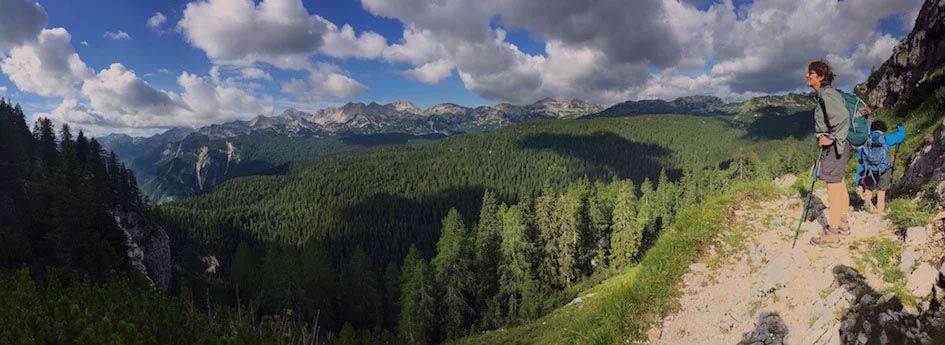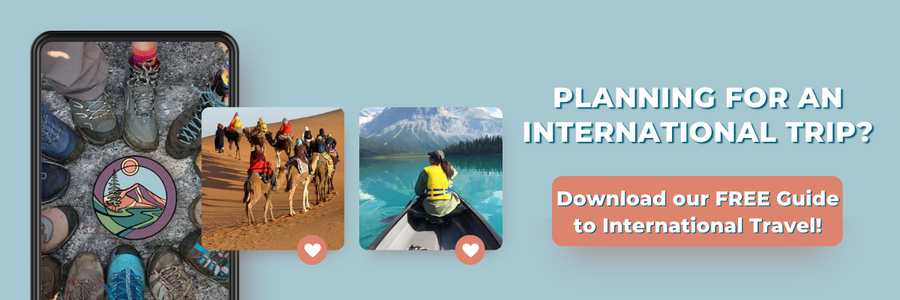We are in the thick of planning for 2014 and even 2015, and while planning for a group of people who are paying you is different in some respects than planning an itinerary for your partner or friends, there are still some key questions that you have to ask.
- Where are you going to go? This can be the most difficult one. Over the years we have found that there may be a really awesome place, one with great natural beauty, fun kayaking or hiking, good accomodations - in short, perfect for the kinds of trips we like to offer - but if no one has ever heard of it, no one will sign up. You may run into something similar with friends - "What? Why would we want to go there?!!" At the same time, if you're interested in adventure travel, an itinerary that totally stays on the beaten path probably isn't appealing either. But for international trips in particular, an itinerary that starts in a major city and goes from there can be perfect. AMjor cities have better airline access and accommodation; plus you can come a day early so you have time to recover from travel fatigue and deal with lost luggage and missed flights.
Whether you want to plan your city time probably depends on the city. Most European cities are quite easy to navigate with enough tourist information bureaus that you can decide what to do once you're there. Other cities, where the alphabet is different and few people speak English, may be more enjoyable with at least a guided tour to get you oriented. - Will you stay one or two places or be moving most days? There are definite advantages and disadvantages to both. Some people love staying in one or maybe two places because they find that not having to pack up is more relaxing, they like getting to know a place better, and in general it provides for a more relaxed and in depth experience. The disadvantage is that you either see less of an area or spend more time driving, unless there is lots to do from that one location. On a trip that is moving frequently, you trade off seeing more for packing more. And those trips are in depth in a different way.
Our two trips to Switzerland are a good example. On our Day Hiking the Swiss Alps, we stay in 2 different villages. There are lots of hikes from both villages, easily accessible by public transport, and we end up seeing a lot of the Lauterbrunnen Valley and Zermatt areas. On our Swiss Alps Alpine Pass Route, we hike from village to village on old trails, passing from the Lauterbrunnen Valley into the Kiental, an area that is only a mountain pass away but has a completely different feel to it. Some of the areas we can get to are more remote and have less of a tourist feel. But at the same time, we don't have the relaxation of settling in. Which is more appealing is a totally individual decision. - How structured do you want it to be? On our trips we find that most people want a fairly good idea of how they will be spending each day but they don't want it so highly structured that it feels rigid. On a personal trip, you need to make the same decision. If you don't plan anything, you may find yourself uncertain about what to do, you might miss doing something very worthwhile, or you might spend so much energy trying to figure it out on site that you waste time. But if your plans are very structured, then you may not have the time to sit at the restaurant you discovered, or hike the trail a local tells you about that isn't in the guidebooks. We've found that a day that allows some time for serendipity is more rewarding than a day that is crammed full from breakfast to bedtime.
- How much do you want to use TripAdvisor to plan your trip? There is no doubt that TripAdvisor has made it easier to avoid ending up in fleabag hotels and overpriced restaurants. When we're starting to plan a new itinerary we often use TripAdvisor to point us in the direction of what hotels or restaurants we should check out. And while there is always the issue of fraudulent reviews, TripAdvisor has been aggressive in trying to weed them out and penalize establishments that use inappropriate tactics. So if a restaurant or hotel has a lot of good reviews that don't look suspicious, it's probably a good bet.
The potential downside, though, is that you may miss a small restaurant, a local hangout, or a brand new establishment if you leave nothing open to chance. Asking a local person or two will often get you to some gems. But ask yourself this - is the risk of a mediocre meal worth the possibility of an unexpected delight? Or will you be really bummed if that happens?
Almost all of travel is about personal taste and preferences. Even if you decide to go with a tour group, each company has its own flavor - how big are the groups, where do they stay, how much unstructured time is there? If you're not sure what your preferences are, the only way to find out is to try something - anything - and pay attention to whether it feels right to you.




